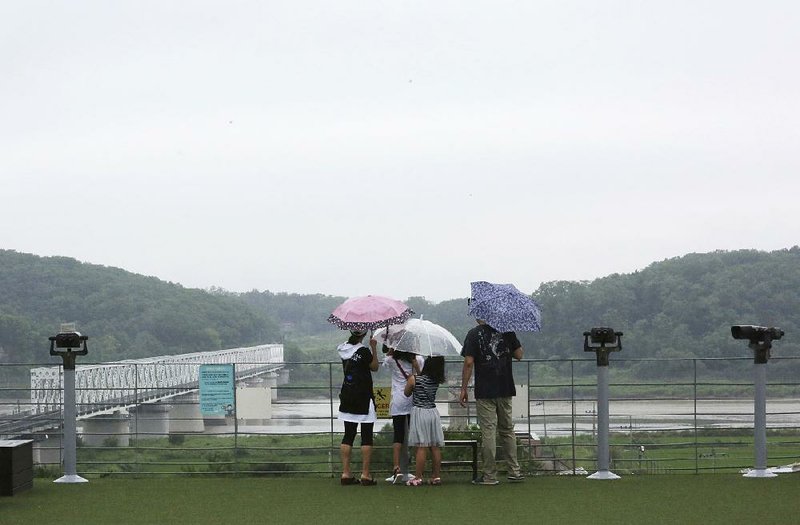WASHINGTON -- The U.S. is still hoping to hold another round of nuclear talks with North Korea despite the country's recent missile tests, Secretary of State Mike Pompeo said Wednesday.
Those talks could be held within a "a couple of weeks," Pompeo said, speaking shortly after returning from Asia and a failed effort to meet with officials from the isolated country.
He also pointed out that North Korea's recent tests were of short-range missiles, but that the government of Kim Jong Un was conducting nuclear tests and long-range missile tests when President Donald Trump took office.
"We watch the actions that they are taking, the actions that are taking place inside of North Korea," he said. "We are mindful that when we came in there was nuclear testing taking place. That has not occurred, there are not long-range missiles being fired. Those are both good things."
At their historic first summit in Singapore, Trump and Kim agreed to pursue denuclearization of the Korean Peninsula, but little progress has been made. The talks broke down after an inconclusive second summit in Vietnam earlier this year. The two leaders met again in June at the demilitarized zone.
Pompeo had hoped to make progress on a resumption of talks last week by meeting the North's foreign minister at an Asian security forum in Thailand. North Korea, however, did not send anyone to the conference and a meeting never materialized.
Despite that, Pompeo said he remained hopeful the talks would restart.
"We are planning for negotiations in a couple of weeks and we anticipate the two teams getting back together," he said.
Earlier Wednesday, North Korea said Kim had supervised a live-fire demonstration of newly developed, short-range ballistic missiles that was intended to send a warning to the United States and South Korea over joint military exercises.
The official Korean Central News Agency said two missiles launched from a western airfield flew across the country and over the area surrounding the capital, Pyongyang, before accurately hitting an island target off its eastern coast.
The tests were the latest of four rounds of weapons demonstrations over the past two weeks that have taken place during the stalemate in nuclear negotiations. Trump has repeatedly dismissed the significance of the tests, even though the weapons show North Korea's ability to strike at U.S. allies South Korea and Japan and its military bases there.
Also Wednesday, Trump said South Korea agreed to pay the United States "substantially more" for protection against North Korea and that talks have begun to further increase payments.
Trump tweeted the U.S. "has been paid very little" for decades but last year "South Korea paid $990,000,000."
South Korea and the U.S. in March signed a deal to increase Seoul's payments for U.S. troop deployment there from $850 million in 2018 to $924 million in 2019. The White House, when asked about the apparent discrepancy between Trump's tweet and those figures, said it would look into it.
Trump's financial demands have triggered worries in South Korea that he might withdraw some of the 28,500 U.S. troops.
South Korea's Foreign Ministry said Wednesday that the cost-sharing talks had not officially started. But it said that U.S. and South Korean officials during U.S. national security adviser John Bolton's visit to Seoul last month agreed that the upcoming negotiations should proceed in a "rational and fair direction."
Information for this article was contributed by Dino Hazell of The Associated Press.
A Section on 08/08/2019
